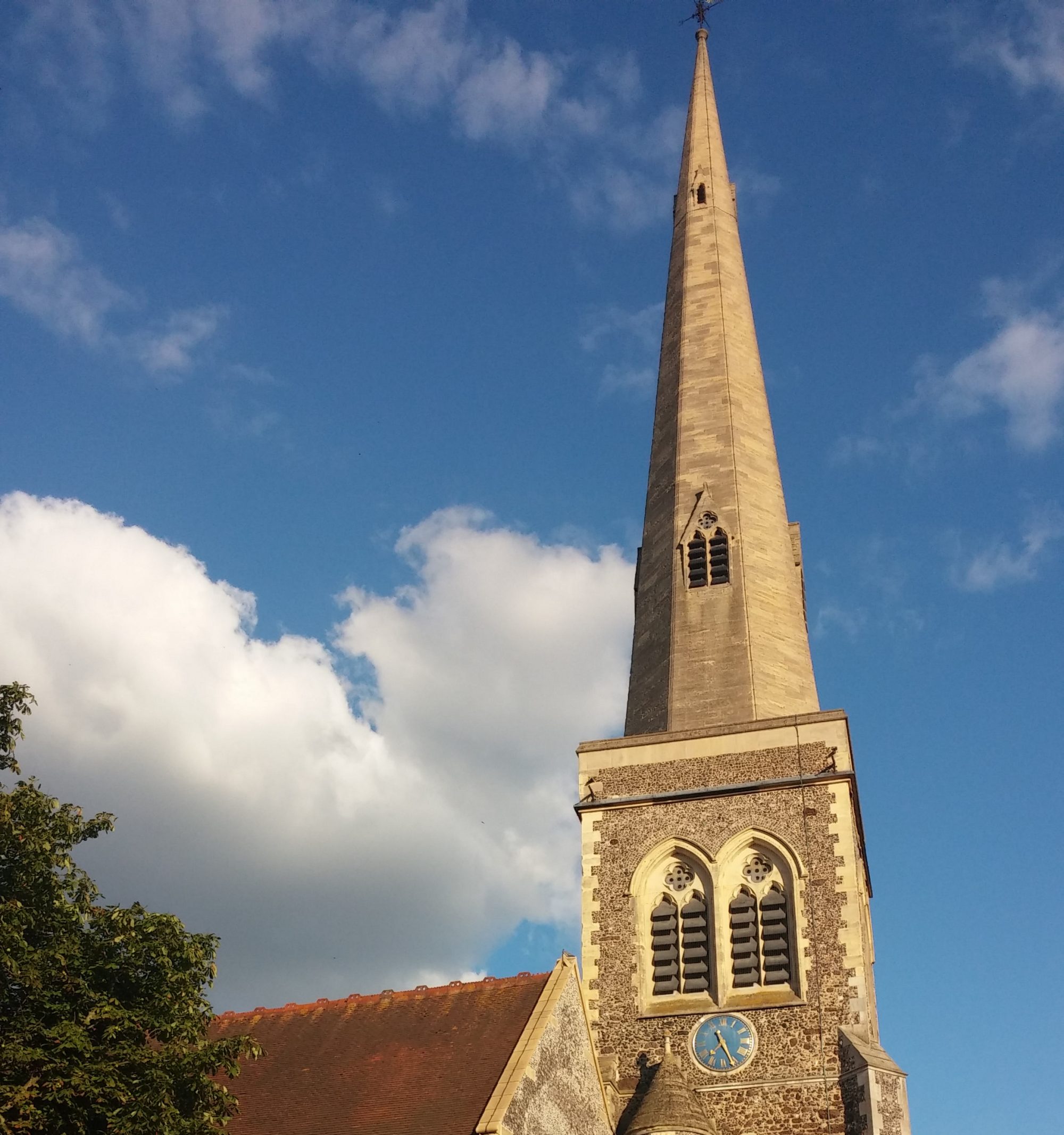Oxford Diocesan Guild of Church Bell Ringers Safeguarding of Children and Vulnerable Adults in the context of Bell Ringing
Policy Statement
The Oxford Diocesan Guild of Church Bell Ringers (ODG) is committed to the safeguarding of child and vulnerable adult bell ringers.
The ODG policy and procedures are based on those provided by the House of Bishops, the Diocese of Oxford, and the Central Council of Church Bell Ringers.
- The ODG will adopt the diocese procedures relating to the safeguarding of child and vulnerable adult bell ringers. See Appendix 1.
- The Guild Safeguarding Officer will ensure that guild members are informed of all aspects of relevant legislation and good practice, and the guidance will be communicated widely.
- The welfare and protection of all young ringers will be actively promoted in all towers in the diocese.
Procedures
All tower captains should be aware of the House of Bishops, the Diocesan, the CCCBR, their Parish and the Guild policies on safeguarding children and vulnerable adults.
- The tower captain, the children’s officer and anyone who trains or teaches children under 16 will need Disclosure and Barring Service (DBS) See Appendix 1. DBS clearance certificates can be used in other towers if in date and in the same context. That is, DBS obtained through the parish office for the specific activity related to ringing and teaching of ringing, can be used for teaching and supervision in other towers and on courses. DBS obtained for other activities may not be used unless portability was applied for at the time of issue.
- On every occasion, when there is a child under 16 present, who is not accompanied by a parent or other responsible adult, nominate an adult to be responsible for safeguarding on that occasion. This adult should be aware of the behaviour in the ringing room and be prepared to take action if any inappropriate activity occurs. Ensure that everyone present can identify the nominated person and can approach them if necessary. If this procedure is followed there is no requirement to appoint a Children’s Officer for every tower. This adult should be identified on the attendance register for the occasion and for best practice should also be DBS checked.
- Always have two adults present when children under 16 are being taught
- Invite the parents of any trainee to come and watch a training session before allowing their child to start to learn. Require a parent to attend the first training session and ensure that the parent fully understands what is involved in learning to ring
- Make sure that a parent is responsible for delivering and collecting the child to and from the tower
- Ask parents to sign a form giving permission for the child to be taught to ring. See Appendix 1
- Keep an attendance register
- Be aware of the insurance position for children
- Never allow children up amongst the bells apart from an initial demonstration visit (if it is safe to do so)
- In addition, it has been agreed with the diocesan safeguarding adviser that children may be permitted amongst the bells for the purposes of learning simple maintenance if they are accompanied by DBS checked adults and are never alone.
- Get parents to sign a detailed parental consent form for tower outings
- Care should be taken when emailing children and groups: use the ‘blind copy’ to conceal individual’s addresses; if using email to make arrangements for outings or special practices consider copying in the children’s officer, tower or branch secretary as well so that the message is in the public domain
Appendix 1
- The Oxford Diocese safeguarding policy can be found in the Diocese of Oxford Safeguarding Handbook for the protection of children and vulnerable adults
- Disclosure and Barring Service (DBS) checks should be completed for those who directly teach young ringers on a frequent or intensive basis or overnight, and those who supervise these teachers (usually the tower captain). The current definition of frequent is once a week or more often, the current definition of intensive is 4 days or more in a 30 day period and overnight means between the hours of 2 and 6 a.m. Other adult ringers in the tower who offer helpful suggestions to learners or ‘stand behind’ are not required to undergo DBS checks.
- DBS checks should be carried out through the parish arrangements and would require the applicant to fill in a National Confidential Declaration Form. DBS clearance certificates can be used in other towers if in date, and in the same context. That is, DBS obtained through the parish office for the specific activity related to ringing and teaching of ringing, can be used for teaching and supervision in other towers. DBS obtained for other activities may not be used unless portability was applied for at the time of issue.
- It is good practice to have one male and one female in each tower who has undergone DBS checks.
- 16 and 17 year olds who are members of a group which is otherwise composed only of adults, and with no under 16s present, can be treated as adults.
- Parents should attend their child’s first session at the tower. The tower captain should explain what is involved in ringing and stress safe behaviour in the ringing room. Parents should be told that it may occasionally be necessary, for safety reasons, for the teacher to speak loudly to the child and to touch their hands in order to control the bell.
- Written parental consent should be obtained before a young ringer joins the tower and this should include a record of any relevant medical information, contact numbers for the parents and the child’s GP. Specific parental consent must also be obtained for any activity that takes place away from the home tower.
- There must be clear written arrangements when children are travelling in cars, other than with their own family members. If parents make mutual arrangements with friends to transport their children to ringing activities then no DBS checks are required. If children are to be transported on activities arranged by the Guild, branch or tower in a vehicle organised by the Guild (branch or tower) then the driver should be DBS checked and parental consent must be obtained. Children must be safely seated in the car according to legislation relating to their height. It is good practice for male and female adults to be present in a car and when this is not possible then the children should sit in the back. For full details refer to the Diocese of Oxford Safeguarding Handbook.
- It is perfectly in order for parents to photograph their own children at bell ringing activities. However, if the Guild/branch/tower takes photographs (or makes any other images) of children for publication in a newsletter or newspaper or on a website etc. then parental permission must be obtained; there should be a consent form which includes the information about how, and where, photographs will be stored. A child’s first name only should be linked to his/her photograph. Photographs may not be shared on social media without the knowledge and permission of parents.
- Every effort should be made to ensure that First Aid help can be quickly obtained either from a member of the band or from someone living near the church and that rapid contact can be made with the emergency services – for example by having a mobile phone in each tower.
- Every effort should be made to ensure that Health and Safety matters are considered and reasonable steps taken to remedy any deficiencies. At a minimum there should be emergency lighting, fire extinguishers and a first aid kit available. Risk assessments should be undertaken where appropriate.
- It is important that members of the tower should be vigilant when young ringers are present, especially when they are sitting out. If there are any concerns about the behaviour of anyone in relation to a child then the Guild Safeguarding Officer should be contacted or the Diocesan Safeguarding Children Advisor
- The tower captain in particular is expected to note and report any inappropriate behaviour.
From time to time, a ringer’s conduct in relation to children and vulnerable adults may give cause for concern. The tower captain should inform the Vicar and contact the Guild Safeguarding Officer who will advise and, if appropriate, consult the Diocesan Safeguarding Children Advisor. The ringer in question may be asked to complete a confidential declaration.
If a ringer is found to have a record of inappropriate behavior, or is convicted of offences against children, the Guild will take the matter extremely seriously. In consultation with the Diocesan Safeguarding Children Advisor and the vicar of the parish concerned, the Guild Master (or nominee) and the Guild Safeguarding Officer will offer advice on the appropriate precautions for the protection of young ringers that should be included in any agreement the parish decides to make with the offender regarding his/her activities. Depending on the nature of the risk, these precautions may include increased supervision of the ringer, or a requirement that the ringer agrees not to attend practices or other ringing activities in any tower where children are present.
If the behaviour of the ringer in question is judged to have been so severe as to bring the Guild into disrepute, then the Guild may consider exercising its established process of censure or exclusion from membership as described in the Guild rules. This would be separate from any agreement made by the vicar and the ringer concerned.
Appendix 2 Reporting concerns about children
If anyone in the church is uncertain whether or not abuse has taken place, he or she can contact the Diocesan Safeguarding Adviser or the local authority children’s social care team.
- Safeguarding action is the responsibility of the local authority, working in partnership with other agencies and the parents
- Don’t delay in making referrals
- The paramount priority is the safety of the child
The person receiving the disclosure or observing the signs of abuse should:
- act swiftly: inform either the incumbent or the Parish Safeguarding Officer within 24 hours of the disclosure being made
- never speak directly to the person against whom allegations have been made, or whom they may suspect
- if the alleged perpetrator is under the age of 18, seek advice before speaking to his or her parents
- never attempt to investigate the situation themselves; if it is necessary to ask question to clarify what is alleged, avoid leading questions, i.e. ones which imply an answer
- record what has happened or been said
Making records
- Write the child’s actual words, not a paraphrase
- If recording allegations make it clear that they come from a third party
- Distinguish fact from opinion
- Date and sign
- State your full name and role in the church
- Give the record to the Parish Safeguarding Officer and ensure it is kept in the secure cabinet
MAIN DOCUMENTS TO REFER TO:
Diocese of Oxford Safeguarding Handbook for the Protection of Children and Vulnerable Adults 2012 www.oxford.anglican.org
CCCBR information available from their website and search under “Child Protection” http://www.cccbr.org.uk/towerstewardship/pubs/gdlnChildProtection.php
USEFUL CONTACTS
The Interim Diocesan Safeguarding Officer is Jane Fisher (01865 208290)
Jane.fisher@oxford.anglican.org
The Safeguarding Officer for the ODG can be reached at safeguarding@odg.org.uk
CMAL May 2018 / Review date 2020

